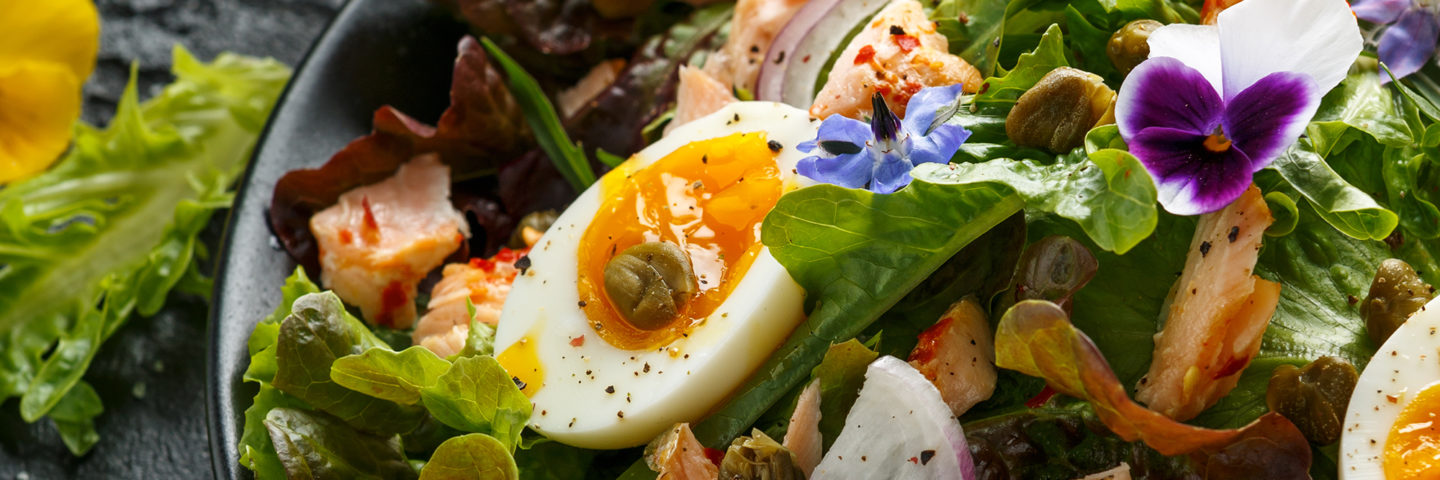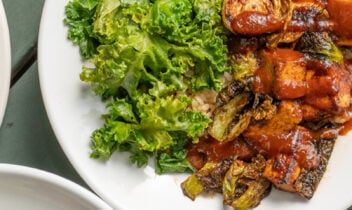
Get the Most Out Of Your Veggies: Put An Egg On It!
Looking to get the most nutritional bang out of your vegetables? You may want to consider adding an egg, and you may be surprised to hear why. We all know that eggs are a good source of high-quality protein, but nutrient-rich eggs are so much more.
According to the 2015-2020 Dietary Guidelines (DGA), eggs fit the definition of a nutrient-dense food, meaning they offer large amounts of beneficial nutrients in comparison to the total calories they provide [1]. For example, one egg provides only 70 calories and is a good or excellent source of eight essential nutrients [2]. And don’t toss the yolk because most of an egg’s vitamins and minerals are found in the egg yolk!
The nutrient profile of eggs almost reads like a multivitamin in a shell. And if you think eggs are impressive on their own, pair them with veggies and you’ve hit the nutritional jackpot. According to science, the dietary fat found in egg yolks may actually enhance the amount of nutrients that your body can get from vegetables.
This has been demonstrated in a study that looked at the impact of combining eggs with vegetables on the absorption of certain nutrients compared to consuming vegetables alone. The results of the study showed that consuming three large eggs with a mixed-vegetable salad increased the absorption of the vitamin E (an under-consumed nutrient) [3] and carotenoids [4] present in the vegetables. Thus, the nutrient package of eggs not only helps with nutrient absorption from the eggs themselves, but also from vegetables paired with the eggs! As Americans are increasingly using eggs as a carrier for vegetables, these recent studies suggest a benefit of this combination beyond simply encouraging more vegetable consumption.
Written by Dr. Mickey Rubin
References
- S. Department of Health and Human Services and U.S. Department of Agriculture. 2015-2020 Dietary Guidelines for Americans. 2015; 8:[Available from: http://health.gov/dietaryguidelines/2015/guidelines/
- S. Department of Agriculture Agricultural Research Service. FoodData Central. 2019; Available from: https://fdc.nal.usda.gov/.
- Kim, J.E., M.G. Ferruzzi, and W.W. Campbell, Egg Consumption Increases Vitamin E Absorption from Co-Consumed Raw Mixed Vegetables in Healthy Young Men. J Nutr, 2016;146:2199-2205.
- Kim, J.E., et al., Effects of egg consumption on carotenoid absorption from co-consumed, raw vegetables. Am J Clin Nutr, 2015;102:75-83.


